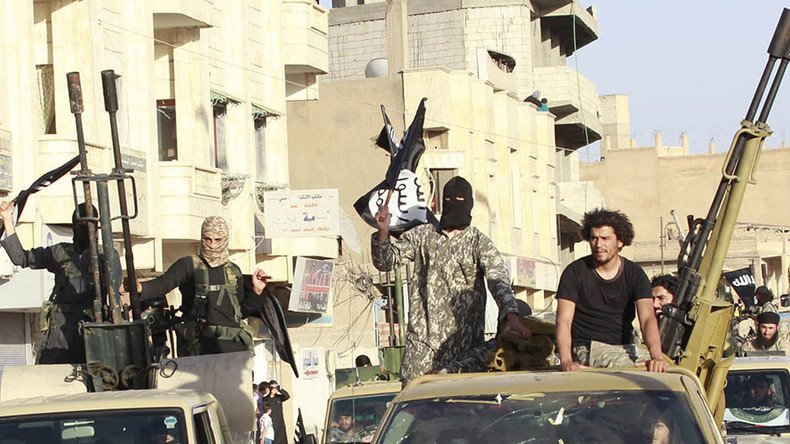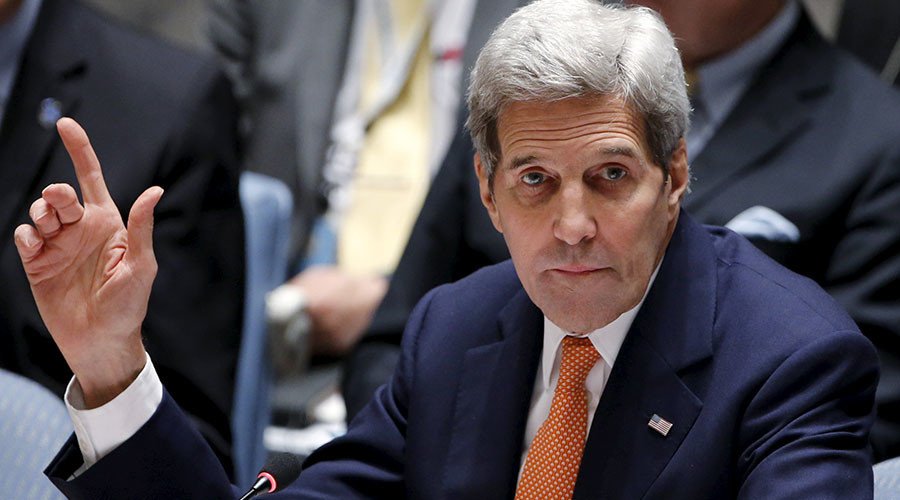‘US delusional on progress in Syria’ – retired Maj Gen

It seems delusional to praise US Secretary of State John Kerry's push to end the war in Syria as he has made no progress other than attending meetings in Vienna and other areas, says Paul Vallely, a retired US Army Major General.
RT: The US State Department published an article praising Secretary of State John Kerry's push to end the war in Syria through the recent UN resolution. But there is no mention of Russia's role in that process. Why is that, do you think?
Paul Vallely: It seems rather delusional to me after I read that report today hailing the progress of the State Department and John Kerry. I see no progress that he has made whatsoever other than attending meetings in Vienna and other areas. The real success was with Iraq forces seizing Ramadi, and hopefully they’ll be holding the area. And the other success is that if we can go to a ceasefire, except for the ISIS [Islamic State/IS, also known as ISIS/ISIL], the Russians and the other coalition forces have to continue to neutralize and destroy the ISIS forces. At the same time, let’s have a truce and a ceasefire with some of the rebel organizations as well as the bombing on civilian areas. And I think this is the biggest thing that the Russians and the Syrian government can move forward to, but they’ve got to keep a ‘full-court press on’ - what we call in American basketball, if I may, to destroy and neutralize all of ISIS in eastern Syria and northern Iraq as well.
RT: For more than a year we've heard Washington demanding that President Assad step down. And only now they seem to be focusing more on the fight against ISIS. Is it even possible to defeat the terrorists without help from the Syrian government?
PV: You have the terrorist jihadists but you also have some of the Free Syrian Army, who are the first ones to stand up against Assad back in 2012. So, you got quite a variety of different forces over there; you have to separate them out. But I’ve talked to some of the senior members of the Free Syrian Army and they would move forward with discussion if they were not bombed in civilian neighborhoods. I think there is a possibility - and after my meeting with Ambassador Mikhail L. Bogdanov from Russia - there was some movement forward for a ceasefire, and hopefully a meeting with some of the warring opposition forces, except for the jihadi forces, and those are the ones that have to be defeated, and Hezbollah is standing up for them, and in a way Iran is supporting Hezbollah. So, it is really a mixed bag over there. But there are solutions; there are options. But the US must work with Russia in order to try to unify or reunify the Syrian country and the government in some way…

RT: The US has also supported the so-called moderate rebels by training and equipping them, with arms often ending up in the hands of jihadists. Is this strategy likely to continue?
PV: The strategy has not been good at all. I don’t even know who we are supporting over there anymore. I recommended several years ago when I was inside Syria that they support the more moderate elements that are looking for a sectarian government in the future Syria and their unification, and that was senior numbers of the Free Syrian Army. Then Al-Qaeda came in in 2013 and then that evolved and grew into the ISIS forces. It is a very bad situation and I could not say why the US State Department would praise any kind of progress over there. The Russians are doing more bombing of the tankers in eastern Syria, trying to shut down the oil revenues of the ISIS forces. And I see that as a very positive move.
RT: The first direct talks between Damascus and the opposition are scheduled for January. What do you make of the timing of these attacks? Is it an attempt to undermine those negotiations?
PV: Certainly, the ISIS forces over there and the radical Islamists are trying to upset any kind of sectarian future Syria. And that’s why in the opinion of General Flynn and myself we have got to work with Russians and try to bring in reputable, respected members of some of the opposition - what we call the sectarian - what we’ve defined as moderate, which nobody seems to be able to put their finger on who those people are. But there are people opposed to Assad; they are available over there to meet with. Some have taken refugee status in Paris and Vienna and also in Jordan and Turkey. But there are some very astute Syrians who oppose Assad and I think they ought to be brought to the table someway. And that way we can at least look for unification and bringing the refugees back from Europe back into western Syria if we can secure it. So, there are options and that is what I presented to the Russians and Ambassador Bogdanov some weeks ago.
The statements, views and opinions expressed in this column are solely those of the author and do not necessarily represent those of RT.












